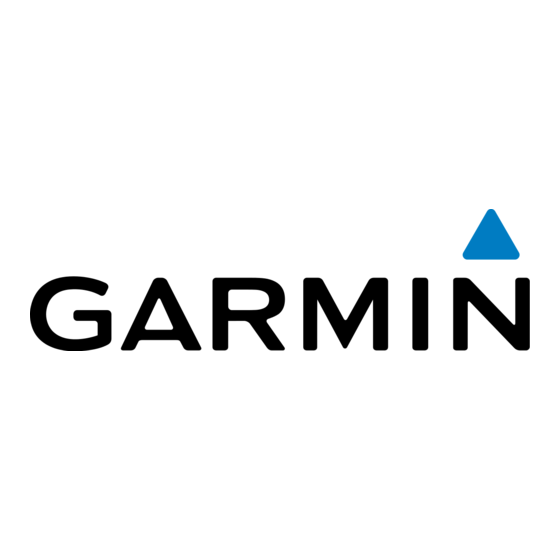Calibrating the Compass
1. Drive your boat at cruising speed in a straight line.
2. Select Begin, and continue to drive in a straight line.
3. When instructed, turn the boat slowly clockwise, taking care to
make the turn as steady and flat as possible.
Turn slowly so that the boat DOES NOT list.
After you successfully complete the calibration, the GHC 10
displays a completion message.
4. Select an option:
• If the calibration completes successfully, select Done.
• If the calibration fails, select Retry and repeat steps 1–3.
Performing the autotune Procedure
Before you can perform the autotune procedure, you must have a large
stretch of open water available.
1. If you have a non-planing vessel, adjust the throttle so the boat
travels at a typical cruising speed that provides responsive steering.
If you have a planing vessel, adjust the throttle so the boat travels
below planing speed.
2. Select Begin.
The boat performs a number of zigzag motions while the Autotuning
is in progress.
The GHC 10 displays a completion message.
3. Select an option:
• If the autotune completed successfully, select Done and take
manual control of the boat.
• If the autotune failed, adjust the throttle and select Retry
Autotune.
• If the autotune failed, and the rudder went hard over or the boat
went in a circle, select Reverse Steering Dir. and Retry.
• If you receive an Error: ECU Drive Circuit Overload. See
manual for tips on reducing load error message, see the tips on
page
17.
4. If autotune fails again, repeat steps 1–3 until the autotune completes
successfully.
5. If the autotune procedure continues to fail after you reach maximum
cruising speed, reduce your speed to the initial autotune speed
and select Alternate Autotune to begin an alternate autotuning
procedure.
Setting north
Before you can set north, you must have at least 45 seconds of hazard-
free, open water available.
This procedure appears if you connect an optional GPS device to the
GHP 10
(page
14), and the device has acquired a GPS position. If you
do not have a GPS device connected, you are prompted to set the fine
heading adjustment
(page
16).
1. Drive the boat in a straight line at cruising speed, and select Begin.
The GHC 10 displays a completion message when the calibration is
compete.
2. Select an option:
• If the calibration completed successfully, select Done.
• If the calibration failed, repeat steps 1–2.
Setting the Fine Heading adjustment
This procedure appears only if you do not have an optional GPS device
connected to the GHP 10
(page
installed on your boat that has acquired a GPS position, are prompted to
set north instead
(page
16).
16
14). If you do have a GPS device
1. Using a handheld compass, identify north.
2. Adjust the fine heading setting until it matches north on the
magnetic compass.
3. Select Done.
Evaluating the Results of the autopilot
Configuration
1. Test the autopilot at a slow speed.
2. If necessary, adjust the gain setting
3. If you receive an Error: ECU Drive Circuit Overload. See manual
for tips on reducing load error message, see the tips on
4. Test the autopilot at a higher speed (normal operating conditions).
5. If necessary, adjust the gain and acceleration limiter settings.
testing and adjusting the autopilot Configuration
1. Drive the boat in one direction with the autopilot engaged (heading
hold).
The boat should not oscillate significantly; however, a small amount
of oscillation is normal.
2. Turn the boat in one direction using the autopilot and observe the
behavior.
The boat should turn smoothly, not too quickly or too slowly.
When you turn the boat using the autopilot, the boat should
approach and settle on the desired heading with minimal overshoot
and oscillation.
3. Select an option:
• If the boat turns too quickly or too sluggishly, adjust the
autopilot acceleration limiter
• If the heading hold oscillates significantly or the boat does not
correct when turning, adjust the autopilot gain
• If you receive an Error: ECU Drive Circuit Overload. See
manual for tips on reducing load error message, see the tips on
page
17.
• If the boat turns smoothly, the heading hold oscillates only
slightly or not at all, and the boat adjusts the heading correctly,
proceed to step 5.
4. Repeat steps 2 and 3 until the boat turns smoothly the heading hold
oscillates only slightly or not at all, and the boat adjusts the heading
correctly.
5. For planing vessels, repeat steps 1–4 at faster speeds
adjusting the acceleration Limiter Settings
NOTE: When you manually adjust the acceleration limiter, make
relatively small adjustments. Test the change before making additional
adjustments.
1. Enable the advanced configuration procedure
2. On the GHC 10, select Menu > Setup > Dealer Autopilot
Configuration > Autopilot Tuning > Acceleration Limiter.
3. Select an option:
• Increase the setting if the autopilot turns too quickly,
• Decrease the setting if the autopilot turns too slowly.
4. Test the autopilot configuration.
5. Repeat steps 2 and 3 until the GHP 10 performance is satisfactory.
(page
17).
page
(page
16).
(page
17).
(page
16).
(page
17).
GHP 10 Installation Instructions
17.

